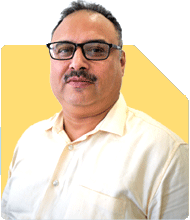Sir, My son is Architect by profession, having own firm since 10 years. His turnover is 80 l last year. His monthly recurring expenses are 2 l per month, which includes car loan, odd loan, salaries, disel charges, food expenses and mis. expenses.Gross income is 3 l per month. Please suggest him how to increase his business to 50 cr. In 2025, investment planning he is 33 year old. Unmarried.
Ans: Your son’s goal to grow his architecture business to Rs 50 crores is achievable with focused business strategies and prudent personal investment planning. Below is a detailed approach to both aspects, with more emphasis on his personal financial roadmap.
Business Planning: Key Pointers for Scaling
Optimise Existing Resources
Review and control recurring business expenses to enhance cash flow.
Focus on profitable clients and projects that offer higher margins.
Upskill existing employees with relevant training to improve productivity.
Expand Client Reach
Target large corporates and government projects for higher-value contracts.
Invest in marketing through digital platforms and industry events to showcase expertise.
Adopt New Technologies
Use advanced architectural software like BIM for efficient project management.
Explore automation tools to streamline operational tasks.
Collaborate for Growth
Form alliances with real estate developers for consistent project flow.
Explore international opportunities by partnering with global firms.
Short-Term Targets
Set realistic growth milestones for the next 6–12 months, such as increasing turnover by 25%.
Ensure smooth cash flow management and avoid over-leveraging.
Detailed Personal Investment Plan
Your son’s current income and expenses provide an opportunity to secure long-term financial growth.
1. Building an Emergency Fund
Maintain six months of expenses (approximately Rs 12 lakhs) as a buffer.
Park this amount in liquid funds or high-yield savings accounts.
This will ensure financial stability during uncertain periods.
2. Investment Allocation for Wealth Creation
To reach ambitious financial goals, disciplined investment planning is essential.
Equity Mutual Funds:
Start systematic investment plans (SIPs) in diversified and sectoral funds.
Choose funds managed by experienced fund managers for consistent performance.
Increase SIP contributions annually as income grows.
Debt Instruments:
Invest a portion in short-term and medium-term debt funds.
This adds stability to the portfolio and balances equity risks.
Gold Investments:
Allocate 5–10% of the portfolio to gold ETFs or sovereign gold bonds.
Gold provides a hedge against market volatility.
3. Retirement Planning
Begin retirement savings immediately to leverage the power of compounding.
Invest in NPS or PPF for secure, long-term growth and tax benefits.
Regularly review and adjust contributions based on lifestyle changes.
4. Tax-Efficient Investments
Maximise tax savings under Section 80C using ELSS or NPS.
For health insurance, use Section 80D benefits for self and parents.
Be aware of new capital gains tax rules for equity and debt mutual funds.
5. Asset Diversification
Avoid overexposure to one asset class, such as direct stocks.
Focus on actively managed funds over index funds for higher returns.
Engage a certified mutual fund distributor (MFD) with CFP credentials to manage investments effectively.
6. Avoid Common Pitfalls
Avoid direct equity investments unless experienced in stock market analysis.
Do not mix insurance with investments; opt for term insurance for life cover.
Regularly review the portfolio and rebalance when needed.
Action Plan for Rs 50 Crore Goal
Investment Requirements
To achieve Rs 50 crore turnover, reinvest at least 10–15% of profits into business growth.
Allocate funds for marketing, technology, and skilled manpower.
Personal Financial Stability
Keep personal and business finances separate to avoid unnecessary stress.
Regularly monitor both business performance and personal investments.
Final Insights
A disciplined and systematic approach to investments will ensure financial security. At the same time, focusing on core business strengths and adopting innovative practices will drive growth. With consistency and planning, your son can secure both his professional and personal goals.
Best Regards,
K. Ramalingam, MBA, CFP,
Chief Financial Planner,
www.holisticinvestment.in
https://www.youtube.com/@HolisticInvestment





















